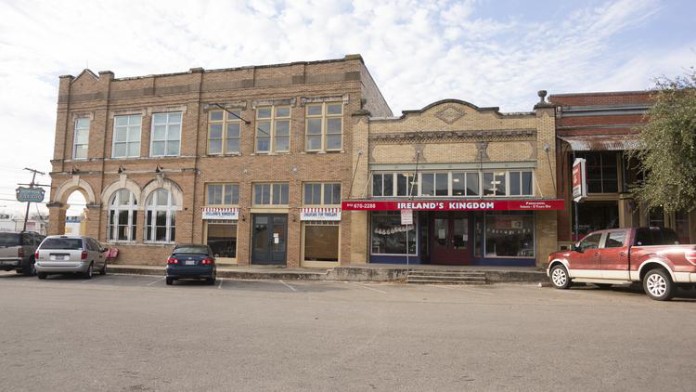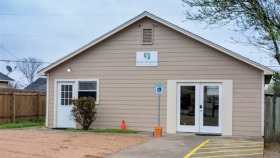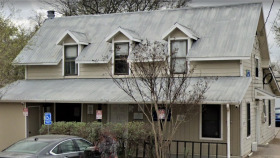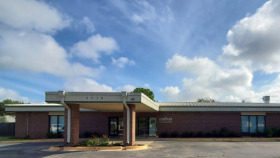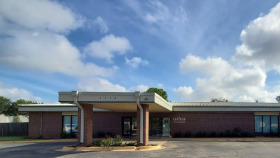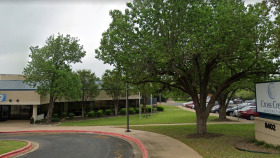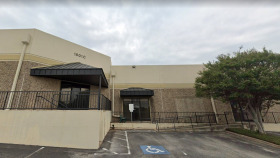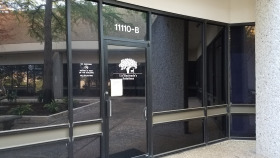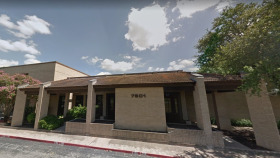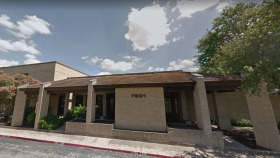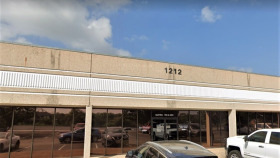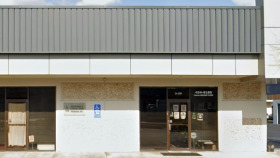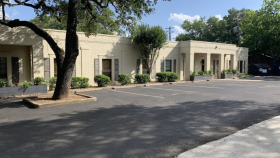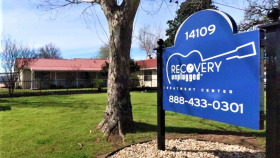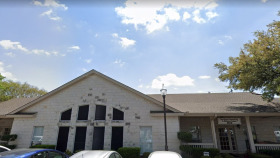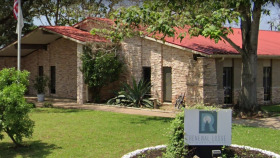Drug and Alcohol Statistics in Pflugerville
Texas Health data on opioid and marijuana use and its effects on counties statewide show that from 2020 to 2021, the following occurred:3
530 emergency department visits for opioid-related issues
172 opioid-related calls made to the poison control center
43 deaths due to synthetic opioids
38 deaths due to prescribed opioids
51 deaths due to heroin
109 deaths due to all other opioids
It was also found that:
18% of Texas veterans die of drug overdoses.4
6.4 of males and 6.8 of whites per 100,000 overdose in Travis County.4
It’s important to know that many overdose deaths involve more than one drug and, often, more than one opioid. With the introduction of fentanyl, overdose deaths are increasing quickly.
Levels of Care for Rehabs in Texas
The following types of substance abuse treatment offer various levels of care. Some Texans enter treatment at the most restrictive levels and move through the continuum of care, while others only require the least intensive interventions.
Alcohol and Drug Detoxification
Detox is the process of safely and comfortably removing drugs or alcohol from your system. This occurs under medical supervision in a hospital, residential, or outpatient setting, to manage withdrawal symptoms and allow Texans to transition into formal treatment services.
Residential or Inpatient
Residential or inpatient treatment involves living at the rehab facility and receiving 24/7 supervised care. A combination of treatment interventions is offered, including individual and group therapy, nutritional counseling, experiential therapies, and medication.
Partial Hospitalization Programs (PHPs)
PHPs allow Texans to live at home while attending treatment at a hospital. You may participate in many of the same treatment methods as inpatient care, but you can return home during non-treatment hours.
Intensive Outpatient Programs (IOPs)
A step down from a PHP, IOPs allow you to attend a few hours of counseling over several days each week. This allows you to spend the rest of your time at home, school, working, or fulfilling other obligations.
Standard Outpatient
The least intensive treatment option, standard outpatient care involves one to two hours of treatment per week. Highly motivated people with a strong support system tend to find this level beneficial.
Relapse Prevention
Relapse prevention, also known as aftercare, begins when you complete a rehab program. It involves ongoing encouragement through therapy, 12-step groups, non-12-step groups, sober living homes, and other types of support.
How to Pay for Addiction Treatment in Pflugerville, Texas
Private Insurance
All insurance providers are required by law to provide coverage for substance abuse and mental health treatment services in some capacity. Coverage varies by plan, so Texas residents must contact their providers to learn about their specific coverage.
Texas Medicaid
The Texas Medicaid program offers health insurance for low-income residents. This includes various treatment services like inpatient drug rehab and outpatient substance abuse treatment. Most Medicaid services in Texas are delivered through managed care health plans under contract with the state. Before enrolling in a rehab program, individuals should confirm that the facility accepts Medicaid as a form of payment.
Texas Medicare
Texas Medicare is a federal program that provides healthcare coverage to residents with end-stage renal disease, those with certain disabilities, and those over the age of 65. Texas residents can use Medicare to cover the cost of drug addiction treatment services, including rehab. However, not all rehabs accept Medicare insurance. Texas offers a free helpline to guide residents through the complexities of Medicare coverage: 800-252-9240.
TRICARE in Texas
Texas TRICARE (West region) is a government program providing health insurance coverage to the U.S. Armed Forces military personnel, veterans, and their families. TRICARE coverage includes addiction treatment services, such as rehab and medication-assisted treatment.
Sliding Scale Rehabs
Sliding scale rehabs are income-based, charging only what Texans can reasonably afford based on how much they earn. To qualify for these programs, individuals must provide proof of income.
IHS-Funded Drug Rehabs
Drug rehabs funded by the Indian Health Service (IHS) provide free addiction treatment to Indigenous people in the U.S. and Alaskan Natives.
Local Information: Traveling to and Within Pflugerville
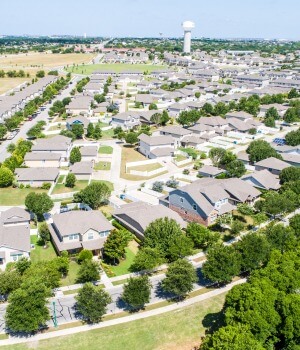
As part of Austin, there is an abundance of traveling amenities to help you get to a drug and alcohol rehab in Pflugerville. Flying into Austin-Bergstrom International Airport lands you just minutes from Travis County. There are many ways to travel from the airport to your location, including:5
- Five rideshare companies
- Three taxi companies
- CapMetro Transit bus service
- 10 rental car companies
- Two shuttle services
- 40+ limousine services
Traveling around town, you can walk, bike, drive, or ride on one of several Metro options, such as:5
- High-frequency bus
- MetroRapid
- MetroRail
- MetroBus Local
- MetroExpress
For weekend trips to and from a Pflugerville drug rehab, you may take an Amtrak train, Greyhound bus, Interurban Coach, MegaBus, Metro Connector, and Flix Bus. There are many financial assistance programs to help those who need transportation at a discount.5
The transportation options are just as varied as lodging in Travis County. Airbnb and VRBO rentals can be booked on their apps. In addition, there are several hotels, beds and breakfasts, and even camping spots for outdoor lovers.
Finding something to do when not attending a Pflugerville alcohol rehab is easy. The following are examples of places to visit and activities that support recovery:6
- Dog-friendly parks
- Museums and memorials
- Water parks
- Festivals
- Indoor and outdoor sports
Also, seasonal events, like the Pfestive Pfarmer’s Market and Movie on Main, occur weekly or monthly.6
Family is a big part of your recovery. Pflugerville drug rehabs have programs to aid families in learning how to support recovery and experience healing for the whole family.
Texas Alcohol and Drug Laws
Texas lawmakers have enacted the following laws regarding substance use:1,2,3,4
Texas Good Samaritan Overdose Prevention Statute: This law is designed to encourage Texas residents to seek emergency medical attention during an overdose situation. It protects individuals who call 911 for assistance with a suspected overdose from prosecution for possession of certain controlled substances (if they have not called 911 for an overdose in the preceding 18 months).
Sandra Bland Act: This law provides for rehab for individuals arrested or convicted of non-violent crimes. Per this statute, Texas criminal justice officials must work to identify people with suspected substance use concerns and divert these individuals to an appropriate treatment facility rather than incarcerate them.
Texas Protections for Employees Seeking Addiction Treatment: Under the Family and Medical Leave Act (FMLA), Texas employees who voluntarily seek alcohol and drug treatment may be eligible for time off work for this treatment. The Americans with Disabilities Act (ADA) also provides some protections for employees who seek addiction treatment
Marijuana Laws: Texas law is among the strictest in the country regarding marijuana. Recreational use and growth are illegal, and medical use is legal but heavily regulated. Penalties for use, growth, possession, or sale of marijuana range from 180 days in jail and a $2,000 fine to life imprisonment and a $50,000 fine.
Resources
- County of Travis. 2022. Commissioner Ann in the News.
- City of Austin. 2018. Drug Overdose and Opioid Use in Travis County.
- Texas Department of State Health Services. 2022. Texas Health Data Drug-Related Deaths.
- Travis County Youth Substance Abuse Prevention Coalition. 2018. Opioids in Travis County.
- Austin-Bergstrom International Airport. 2022. Ground Transportation at the Barbara Jordan Terminal.
- Pflugerville, Texas. 2022. For Visitors: Pfuntex

